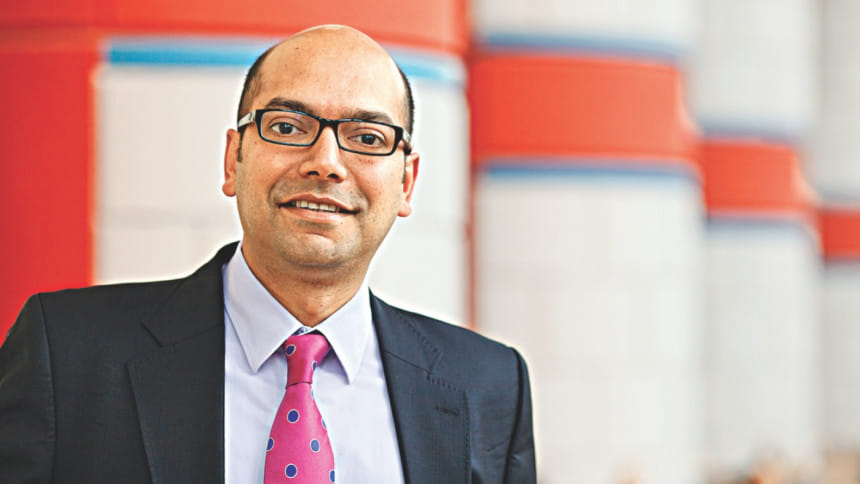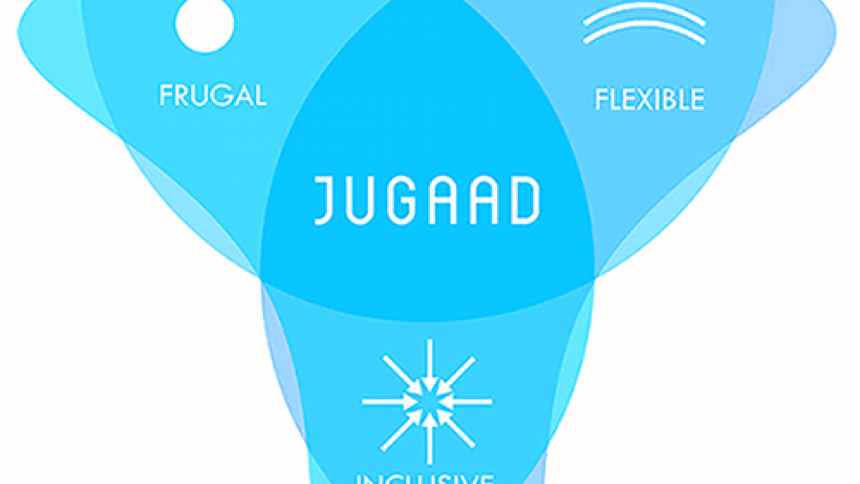Jugaad: The budget approach to innovation

No matter how you describe it, innovation is a key driver in society. And often innovations are not formulated in the boardrooms of corporations. Instead, they are born in the middle of a paddy field. We recently interviewed Dr. Jaideep Prabhu, Jawaharlal Nehru Professor of Business and Enterprise at Cambridge University and a leading researcher of Jugaad—a frugal and flexible approach to innovation—to talk about why innovation knows no boundaries and how it is evolving every day.
So what is Jugaad?
Well in the beginning of my career, I studied innovation in large western corporations. But eventually, I started to look into large emerging markets, particularly India where I grew up. So when I went back to India, I got a much clearer understanding of innovation there.
The approach was very different from what I had seen in the west. The people were really good at taking the cost out of the innovation process. They were doing more with less; to be honest, much less. I also noticed that most of the solutions were designed to bring people outside the formal economy to the formal economy.
So when I asked the local people about their approach, they often used the Hindi/Punjabi word 'Jugaad' to describe it. The word derived from Punjab and North India where the farmers use water pumps as engines for boats and carriages. Thus, the mindset that you have when solving a problem with available resources is called a Jugaad mindset.
What are the underlying principles of Jugaad?
I would say it's really about how to innovate faster, better and cheaper. To elaborate, it's all about how to develop affordable solutions for big basic unmet needs in low-income communities. It could be financial services, health services or even consumer services. We focus on a few things to consider an innovation as a Jugaad. Firstly, it has to be affordable, meaning it has to take resources that are already available. Secondly, it should be inclusive. So it has to reach people who otherwise didn't have access to the service. Thirdly, it has to be frugal. Otherwise the people you are trying to reach will not be able to avail the service.

What are some of the most interesting examples of the Jugaad approach in this region?
There are hundreds of examples of Jugaad in the Indian subcontinent, especially in Bangladesh. For example, BRAC has been doing a great job because they truly embraced the concept of Jugaad in their services like the ORS program in the 80s and the 90s, the micro-finance programme, and even bKash.
In a country like Bangladesh, what would be the impact of Jugaad on the economy?
I believe Jugaad already has and will keep on having a profound impact on Bangladesh. Micro-finance has contributed a lot to the economy by making banking services available to the unbanked. The health sector also saw a sharp turn because of the government and NGOs deploying health workers in regions where doctors or hospitals were not present. In comparison to India and Pakistan, Bangladesh has shown a substantially healthier Human Development Index, which has bolstered the economy in the long run.
Don't you think Jugaad is just an interim solution for problems?
We look at Jugaad as an ingenuity that solves a lot of problems. While it may be a temporary solution, you have to understand why a person or organisation is going for this particular approach—because there are no other options available at the moment. Critics might call it a half-baked solution, but if you look at the bigger picture, you can clearly understand why it was done the way it was done. And there is always the potential to scale up accordingly. Of course everyone wants the gold-plated solution, but that doesn't happen overnight. This is where Jugaad fits in.
How do you see Jugaad evolving over the course of time?
After the book we wrote on Jugaad, it received wide publicity in the west. It was not just corporations that were interested, but startups as well. We are increasingly seeing startups where a bunch of people are working on solving basic everyday issues. While working on these problems, startups began to become value-conscious. They are now collaborating and using resources that are readily available. So that is the sort of evolution we are seeing right now. You can call it Jugaad 2.0 if you will!
Engineer-turned-writer, Shahriar Rahman is Sub-Editor of the tech publication of The Daily Star. He is also Head of Operations at HiFi Public.

 For all latest news, follow The Daily Star's Google News channel.
For all latest news, follow The Daily Star's Google News channel. 



Comments